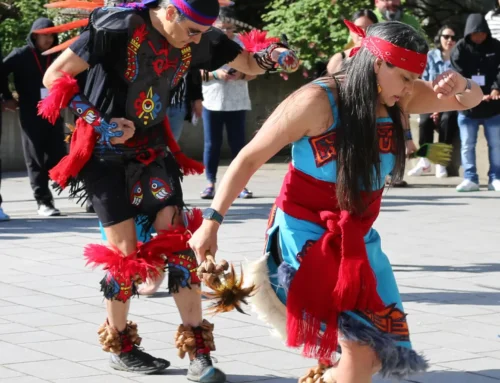Following a Storyline for Meaningful Inquiry
By Brian MacNevin
NWESD Regional Science Coordinator
At the time of this writing, OpenSciEd has made remarkable strides throughout Washington state and the nation! In many science education circles, OpenSciEd has become a common language for discussing three-dimensional instructional units and their elements, and I thought it was a good time to catch folks up on the status of OpenSciEd’s instructional materials development progress.
About OpenSciEd
OpenSciEd builds free, high-quality, Next Generation Science Standard-aligned science materials and outstanding professional learning materials developed by leading science researchers and educators. These units provide educators with a structure to engage all students, with the science goal of students who can explain the world around them. Their units have received top ratings from the NextGenScience.org peer review process, as well as from the EdReports Curricular Review process.
So why do I find these materials so exciting and so compelling? When I came into science teaching, “inquiry” was the shiny new thing that we were pursuing. And we dug in hard! Together with my teacher colleagues in Whatcom and Skagit counties and from the Olympic Peninsula, we learned about inquiry as a way to have students answer investigative questions so that the experiments they were doing made sense to them and so that they could articulate the content understandings we felt were important. They did so in their own words and based on what they did in class. We worked so hard on all of this. And yet, students still asked the dreaded question, “Why do I need to know this?” It’s a dreaded question, but it’s fair. A potential problem was, I believe, that we teachers were coming up with the questions; we were figuring out what students needed to answer them; and we were the ones deciding which questions to tackle next. The things we were having students pursue weren’t useful to them, because the kids didn’t have ownership in the questions.
Enter OpenSciEd units. Similar to Ambitious Science Teaching units, OpenSciEd units are designed from the student perspective to be coherent and engaging, providing educators with enough support and material to allow them to adapt the units as they see fit. OpenSciEd classrooms allow students to learn science through coherent storylines that present students with a puzzling phenomenon; center learning on student-led questioning, investigating, and problem-solving; and support teachers in their role as learning facilitators rather than lecturers.
At this time, OpenSciEd has released a complete middle school (6-8) scope and sequence. They have released several high school units. And they should have the first K-5 units released in the fall. Below, I’ve shared some milestones and links to useful resources that you can explore and locate what supports OpenSciEd might be able to provide for your district.
Elementary (K-5)
The K-5 field test began in fall of 2023.. The K-5 OpenSciEd materials will see two units field-tested in 2023-24 and two more field-tested in 2024-25. When released, there will be four OpenSciEd units in each grade level K-5. You can read more about the K-5 OpenSciEd unit structures and routines with these resources:
Middle School (6-8)
The grade 6-8 field test is complete.All of the materials have been are now available. Learn more about middle school materials at these links:
High School (9-11)
The grade 9-11 field test is complete, and the units are currently under review and revision. In August 2023, the first of the units in each grade level was released. You can learn more about the 9-11 materials from these resources:
- The 9-11 OpenSciEd Website
- The 9-11 Development Timeline and Release Schedule
- The 9-11 Teacher Handbook
- The 9-11 Scope and Sequence
Science Materials Center
The NWESD also offers the Science Materials Center, a cooperative that provides cost-effective science kit refurbishment services to member districts. We take care of purchasing and prepping kit materials allowing teachers to spend more time teaching science and less time managing materials.
For more information, contact Kelly Spears.
Since 2013, Brian MacNevin has served the NWESD as Regional Science Coordinator. With 30 years of experience as a science educator and regional experience spanning outdoor education, middle school and elementary science teaching, the North Cascades and Olympic Science Partnership (NCOSP), Physics by Inquiry (PBI), Washington State Science Fellows, Ambitious Science Teaching (AST), ClimeTime, and OpenSciEd; Brian’s supports science teachers’ pedagogical content knowledge to pursue deeper and more diverse student engagement in the discourses and practices of science.



